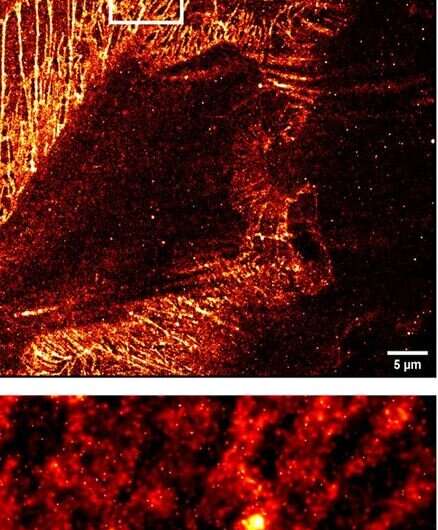Blood vessel inflammation could be switched off by new molecule

Scientists are testing whether a new molecule could help switch off the inflammation that worsens cardiovascular diseases.
The Heriot-Watt and University of Glasgow team is using real human blood vessel cells to test the molecule in the lab.
Their focus is on finding using the molecule to activate an enzyme called EPAC1, which protects the cells lining blood vessels from inflammation.
Understanding how the molecule does this could lead the way to new treatments.
Dr. Stephen Yarwood, associate professor of biochemistry at Heriot-Watt University, said: "We want to find a treatment for atherosclerosis, a condition when arteries become clogged. It can cause heart attacks, angina and strokes.
"We know from previous research that the EPAC1 enzyme can activate a savior gene that switches off the inflammation in the blood vessel cells.
"Unwanted inflammation exacerbates cardiovascular disease, so any treatment that can prevent it will be a breakthrough for patients.
Testing is underway in their laboratory, and the process will take three years.
Yarwood continued: "Professor Pasquale Maffia has developed a cell culture model that mimics how atherosclerosis would develop in humans.
"We'll add our molecules to the cells and monitor all of the gene activity that occurs. If adding the molecules causes favorable changes, then we know the treatment has potential.
"We will eventually understand how to regulate inflammatory responses linked to atherosclerosis, which will be a huge step forwards."




















